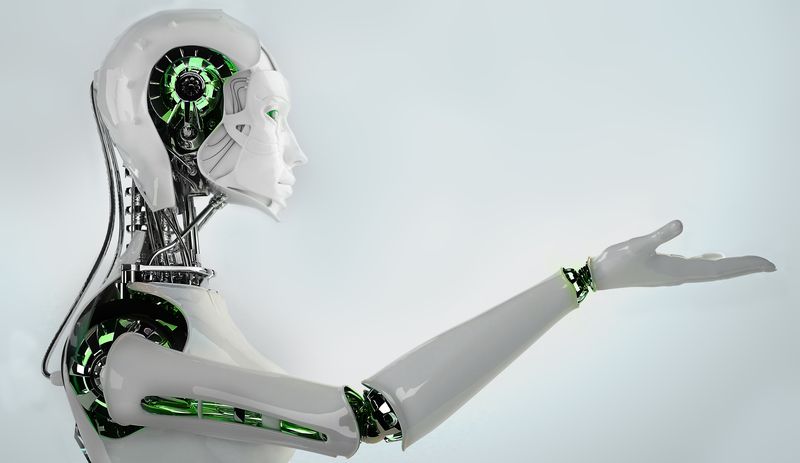- Community Home
- >
- Partner Solutions and Certifications
- >
- OEM Solutions
- >
- How will Artificial Intelligence impact the future...
Categories
Company
Local Language
Forums
Discussions
Forums
- Data Protection and Retention
- Entry Storage Systems
- Legacy
- Midrange and Enterprise Storage
- Storage Networking
- HPE Nimble Storage
Discussions
Discussions
Discussions
Forums
Discussions
Discussion Boards
Discussion Boards
Discussion Boards
Discussion Boards
- BladeSystem Infrastructure and Application Solutions
- Appliance Servers
- Alpha Servers
- BackOffice Products
- Internet Products
- HPE 9000 and HPE e3000 Servers
- Networking
- Netservers
- Secure OS Software for Linux
- Server Management (Insight Manager 7)
- Windows Server 2003
- Operating System - Tru64 Unix
- ProLiant Deployment and Provisioning
- Linux-Based Community / Regional
- Microsoft System Center Integration
Discussion Boards
Discussion Boards
Discussion Boards
Discussion Boards
Discussion Boards
Discussion Boards
Discussion Boards
Discussion Boards
Discussion Boards
Discussion Boards
Discussion Boards
Discussion Boards
Discussion Boards
Discussion Boards
Discussion Boards
Discussion Boards
Discussion Boards
Discussion Boards
Discussion Boards
Community
Resources
Forums
Blogs
- Subscribe to RSS Feed
- Mark as New
- Mark as Read
- Bookmark
- Receive email notifications
- Printer Friendly Page
- Report Inappropriate Content
How will Artificial Intelligence impact the future of work?
We are living in an era where people interact with machines on a routine basis. With the advent of Artificial Intelligence (AI), technology is interwoven into many of our everyday job tasks. AI, machine learning, deep learning, and automation are no longer future technologies, they’ve already found traction in the enterprise. Whether it’s to organize data, to uncover trends or to make human’s lives easier, AI can have a positive impact on the enterprise.
AI is set to impact work in three major ways: human-to-machine interaction, smart process automation, and advanced analytics. Over the past few years, technology has made huge advances in approximating human interaction, especially when it comes to speech recognition and detection of emotions, visual cues, and voice intonation. Human-to-machine interaction is becoming more and more advanced, and today the goal is to make machines interact in as human-like ways as possible. From Alexa to Siri to Google Home, these technologies are becoming more ubiquitous at a tremendous pace and will have a big impact on how we perform our jobs in the years to come.
AI will also affect work through smart process automation, the elimination of work and the labor arbitrage associated with replacing people with bots. Today, machines are already responsible for much of the basic work done across many industries. From robotic process automation to natural language document translation to fielding customer service requests, they are becoming smarter and more capable.
The third way AI impacts businesses is through advanced analytics — using data to find patterns and then using machine learning to discover insights. This gets to the heart of the question “How are AI-powered machines and chatbots changing the future of work?” Advanced analytics and AI-based machine learning are about discovering patterns in data and using those identified patterns to generate value. It helps companies better plan business operations and better understand customers. This technology enables business leaders to gain insight into their organizations as they function, allowing them to increase revenue, reduce costs and improve overall customer satisfaction. In today’s digital age, companies must act quickly, and often in real-time. That’s why advanced analytics is becoming essential for organizations that want to be truly insight-driven.
As businesses embrace AI, robots, machine learning, and deep learning, they will need a clear strategy for leveraging the technology without creating fear around the displacement of jobs or crossing ethical lines. The point here is to affirm and assert that there will be work in the future and our challenge is to make sure that that work is quality work that is meaningful work, which is accessible work.
To learn more about Artificial Intelligence at HPE, click here.
More Featured Blogs:
- How do we leverage Internet of Things for efficient patient care?
- Here's how HPE OEM Solutions helped Gractor offer Edge Solutions for IoT Platforms
Featured articles:
- What AI means for you and your business―now and in the future via HPE's Enterprise.nxt
- How data and AI will shape the post-pandemic future via HPE's Enterprise.nxt
- Supercomputers, AI, and the power of big data sets via HPE's Enterprise.nxt
- Want to know the future of technology? Sign up for weekly insights and resources
Matt Quirk
Hewlett Packard Enterprise
twitter.com/hpe_partner
LinkedIn/groups/6988995/
hpe.com/us/en/solutions/OEM
MattQuirk
With a passion for innovation and technology, I am lucky enough to work within high-growth opportunities across multiple industries including manufacturing, healthcare, energy, media and entertainment and security - with technology innovations that are advancing the way people live and work such as AI, autonomous everything and 5G.
- Back to Blog
- Newer Article
- Older Article
- Niladri_Nayak on: AI's Impact on the Future of Work
- PrakashGohel33 on: How is technology redefining the future of the hea...
- Abhijit W on: Champion the Digital Era Along with our OEM Partne...
- subhashupux on: Discover 2018 Las Vegas: Download the Event App To...
- JillSweeneyTech on: Why and How of IoT for OEMs in the Food Industry
- Luis Albejante on: Take on New Opportunities with Hybrid IT and Get t...
- Con Kamaras on: Predictive Maintenance: A Paradigm Shift
- Mark Stanley on: Dell-EMC Deal Spells Risk and Uncertainty for OEMs


